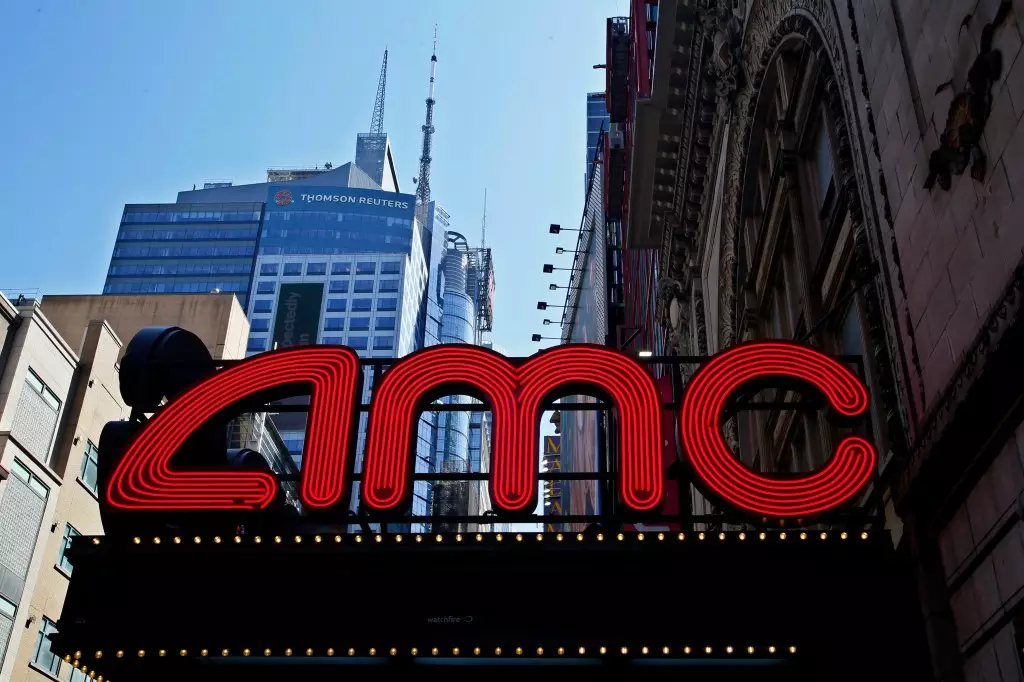AMC Entertainment, the giant theater chain, is facing a critical juncture as it prepares to sell up to 40 million shares. While stockholder approval has been obtained and the dispensation of its APE units is complete, there is discontent among stockholders due to the potential dilution of their holdings. The decline in AMC shares by over 20% in mid-morning trade further highlights the concerns associated with this move. However, with recent strategic maneuvers such as a reverse stock split, AMC has created some room for maneuver. This article critically analyzes the challenges and opportunities faced by AMC Entertainment.
The filing of a prospectus with the SEC provides AMC Entertainment with the flexibility to raise capital if required to bolster its liquidity. The net proceeds from any share sale would be allocated to various purposes including debt repayment, refinancing, and general corporate needs. Although the summer box office has shown promising results and the announcement of the distribution of Taylor Swift: The Eras Tour has garnered massive presales, AMC’s recovery from the effects of the Covid pandemic has been slow. Additionally, the uncertainty caused by ongoing Hollywood strikes and the company’s high level of debt further complicate its financial position.
The CEO’s Imperative
AMC Entertainment’s CEO, Adam Aron, has consistently emphasized the importance of having the flexibility to sell stock if necessary. This stance is likely driven by the need to address the company’s financial challenges and adapt to the evolving entertainment landscape. The approval of stock sales, the reverse stock split, and the conversion of AMC Preferred Equity units into common shares at a special meeting indicate the shareholders’ acknowledgement of the need for such measures. However, it is important to note that these decisions were not without resistance, particularly from the large base of retail shareholders.
AMC Entertainment has an unusually large base of retail shareholders who have been resistant to stock sales. Despite their concerns, the proposed actions were ultimately approved. The resolution of a stockholder lawsuit in Delaware Chancery Court has cleared the path for implementation. The retail shareholders’ influence and resistance highlight the importance of maintaining their trust and addressing their concerns while pursuing necessary financial strategies.
Market Uncertainties
The challenges faced by AMC Entertainment are compounded by various market uncertainties. The prolonged Hollywood strikes have disrupted the movie release schedule, impacting the company’s ability to attract audiences and generate revenue. Navigating through these uncertain times requires agility and adaptability to stay relevant in an ever-changing entertainment landscape.
The Path Forward
AMC Entertainment faces both challenges and opportunities as it seeks to overcome its financial hurdles. While the stock sales may dilute existing holdings, they provide the necessary capital to support the company’s operations and navigate through the ongoing challenges. The strategic maneuvers undertaken, such as the reverse stock split, demonstrate a proactive approach in ensuring the company’s survival and growth. Effective communication and engagement with retail shareholders will be crucial in maintaining their support and confidence.
AMC Entertainment’s decision to sell shares amidst a challenging environment reflects the company’s determination to address its financial concerns and seize opportunities for growth. The critical analysis of the challenges and opportunities faced by the company highlights the need for careful navigation through market uncertainties and maintaining stakeholder trust. As the entertainment landscape continues to evolve, it is essential for companies like AMC to adapt and innovate in order to sustain their presence in the industry.

